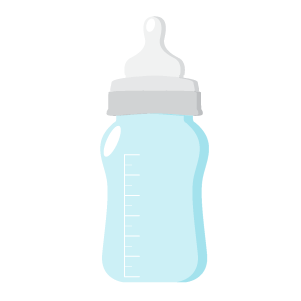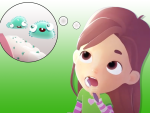
When parents put their little ones to sleep, sometimes they leave them with a bottle. While that might be soothing as they drift off to dreamland, leaving a bottle in the crib can be problematic for tiny teeth. In celebration of National Children’s Dental Health Month this February, take a moment to brush up on the basics of baby bottle tooth decay.
What is baby bottle tooth decay?
Put simply, baby bottle tooth decay means cavities in baby teeth and can begin soon after teeth appear. It occurs when a baby’s teeth are exposed to sugar for extended periods like at naptime or overnight. During this time, sugar pools around teeth and attacks enamel. With enough exposure, it can lead to high amounts of tooth decay. This sugar can be introduced from baby bottles with liquids such as milk, formula or juice.
Why is it a problem if baby teeth are going to fall out anyway?
Even though baby bottle tooth decay relates to teeth that eventually fall out, it can still create lasting consequences. Healthy baby teeth are essential for chewing, speaking and smiling. When kids’ oral health is compromised, they may experience difficulty with these important aspects of growing up. Unhealthy baby teeth can also set the stage for tooth crowding or crooked teeth when adult teeth come in. If the problem isn’t addressed, it could lead to pain or infection, so it’s always a good decision to stay vigilant about oral health from the very start.
How can I prevent baby bottle tooth decay?
You have several options to keep your baby’s teeth free from decay. The best way is to avoid putting your baby to sleep with a bottle. Or, make sure to only fill the bottle with water. No matter the time of day, be especially careful about juice because it has high amounts of sugar. If you do allow juice, it’s better to serve it in a cup rather than a bottle. Most children should be able to drink out of a cup after their first birthday.
Preventive care like brushing and regular checkups is key. Experts recommend scheduling your baby’s first visit within six months of the first tooth and no later than the first birthday. Clean their teeth according to infant dental care recommendations. As soon as baby teeth appear, you should begin brushing them with a baby toothbrush and a smear of toothpaste about the size of a grain of rice. Around age 3 you can begin using a pea-sized amount of toothpaste. Begin flossing when your child has two teeth that touch.
By keeping your baby’s teeth safe now, you can help them develop a happy and healthy smile when their adult teeth appear!






